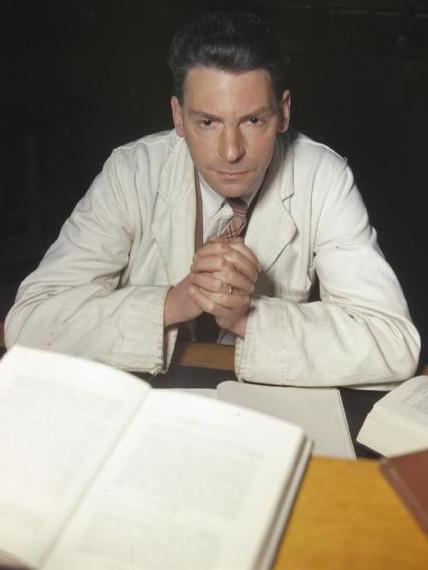Wilson Baker on:
[Wikipedia]
[Google]
[Amazon]

 Wilson Baker FRS (24 January 1900 – 3 June 2002) was a British
Wilson Baker FRS (24 January 1900 – 3 June 2002) was a British

 Wilson Baker FRS (24 January 1900 – 3 June 2002) was a British
Wilson Baker FRS (24 January 1900 – 3 June 2002) was a British organic chemist
Organic chemistry is a subdiscipline within chemistry involving the scientific study of the structure, properties, and reactions of organic compounds and organic materials, i.e., matter in its various forms that contain carbon atoms.Clayden, J.; ...
.
He was born in Runcorn
Runcorn is an industrial town and cargo port in the Borough of Halton in Cheshire, England. Its population in 2011 was 61,789. The town is in the southeast of the Liverpool City Region, with Liverpool to the northwest across the River Mersey. ...
, the youngest of the four children of Harry and Mary Baker (née Eccles); his father was himself a chemist, having studied under Sir Henry Enfield Roscoe
Sir Henry Enfield Roscoe (7 January 1833 – 18 December 1915) was a British chemist. He is particularly noted for early work on vanadium, photochemical studies, and his assistance in creating Oxo (food), in its earlier liquid form.
Life an ...
and Robert Bunsen
Robert Wilhelm Eberhard Bunsen (;
30 March 1811
– 16 August 1899) was a German chemist. He investigated emission spectra of heated elements, and discovered caesium (in 1860) and rubidium (in 1861) with the physicist Gustav Kirchhoff. The Bu ...
, amongst others. Wilson entered Victoria University of Manchester
The Victoria University of Manchester, usually referred to as simply the University of Manchester, was a university in Manchester, England. It was founded in 1851 as Owens College. In 1880, the college joined the federal Victoria University. Afte ...
at the age of 16, and (having spent some time in France as a Quaker
Quakers are people who belong to a historically Protestant Christian set of Christian denomination, denominations known formally as the Religious Society of Friends. Members of these movements ("theFriends") are generally united by a belie ...
volunteer during the First World War
World War I (28 July 1914 11 November 1918), often abbreviated as WWI, was one of the deadliest global conflicts in history. Belligerents included much of Europe, the Russian Empire, the United States, and the Ottoman Empire, with fightin ...
) graduated top of the honours class in 1921. He then undertook a M.Sc. with Arthur Lapworth
Arthur Lapworth FRS (10 October 1872 – 5 April 1941) was a Scottish chemist.
He was born in Galashiels, Scotland, the son of geologist Charles Lapworth, and educated at St Andrew's and King Edward's School, Birmingham. He graduated in chemist ...
, before doing a Ph.D. with Sir Robert Robinson on the synthesis of isoflavones Isoflavones are substituted derivatives of isoflavone, a type of naturally occurring isoflavonoids, many of which act as phytoestrogens in mammals. Isoflavones are produced almost exclusively by the members of the bean family, Fabaceae (Leguminosae) ...
. This was awarded in 1924.
In 1927 he married Juliet Elizabeth Glaisyer, and was appointed by William Henry Perkin, Jr.
William Henry Perkin Jr., FRS FRSE (17 June 1860 – 17 September 1929) was an English organic chemist who was primarily known for his groundbreaking research work on the degradation of naturally occurring organic compounds.
Early life
He was ...
to the Dyson Perrins Laboratory
The Dyson Perrins Laboratory is in the science area of the University of Oxford and was the main centre for research into organic chemistry of the University from its foundation in 1916 until its closure as a research laboratory in 2003. Until 2 ...
in Oxford, where he remained until 1944. Late that year, he was appointed to the Alfred Capper Pass Chair of Organic Chemistry at the University of Bristol, where he remained until his retirement in 1965. In his memory, a ''Wilson Baker lecture'' is hosted by the chemistry department in Bristol every year.
Wilson Baker's early research interests were in plant pigments, like Robinson's, but he also worked on the chemistry of Penicillin
Penicillins (P, PCN or PEN) are a group of β-lactam antibiotics originally obtained from ''Penicillium'' moulds, principally '' P. chrysogenum'' and '' P. rubens''. Most penicillins in clinical use are synthesised by P. chrysogenum using ...
during the war, and had interest in non-benzenoid aromatic hydrocarbons. The Baker-Venkataraman rearrangement is named after him and K. Venkataraman.
A committed Quaker
Quakers are people who belong to a historically Protestant Christian set of Christian denomination, denominations known formally as the Religious Society of Friends. Members of these movements ("theFriends") are generally united by a belie ...
, during his time in Oxford, he became concerned with efforts being made for famine relief in Greece during World War II
World War II or the Second World War, often abbreviated as WWII or WW2, was a world war that lasted from 1939 to 1945. It involved the vast majority of the world's countries—including all of the great powers—forming two opposin ...
. He was a member of the Oxford Committee for Famine Relief which applied for funding under the War Charities Act 1940, and which later developed into the charity Oxfam
Oxfam is a British-founded confederation of 21 independent charitable organizations focusing on the alleviation of global poverty, founded in 1942 and led by Oxfam International.
History
Founded at 17 Broad Street, Oxford, as the Oxford Co ...
.
References
Alumni of the University of Manchester English chemists Fellows of the Royal Society Organic chemists Fellows of The Queen's College, Oxford Academics of the University of Bristol English Quakers 1900 births 2002 deaths British centenarians Men centenarians People from Runcorn {{UK-chemist-stub